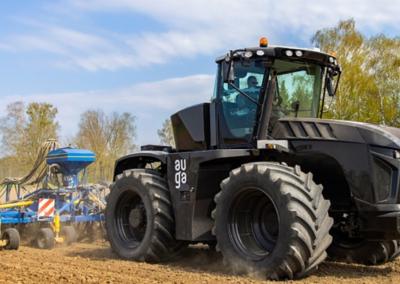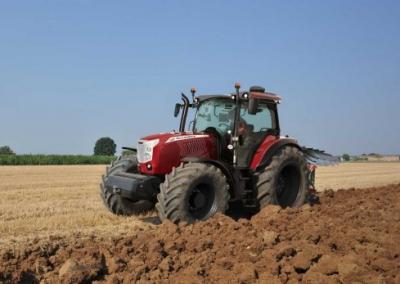Choosing the right tractor trailer for your agricultural needs
In the context of agricultural activities, the term "tractor trailer" often refers to tractor-drawn trailers used for a variety of tasks, such as transporting crops, equipment or utensils on the farm. Choosing the right tractor trailer is a very important decision for farmers and agricultural professionals, with implications for yield, productivity and operating costs. This guide aims to help you make informed decisions, focusing exclusively on tractor trailers used in farming.
The importance of tractor trailers in agricultureTractor trailers in agriculture are different from the commercial truck industry. They are designed to be towed by tractors and are essential for tasks such as transporting crops, fertiliser, moving agricultural equipment or transporting livestock. The right trailer increases the utility of the tractor, making it an indispensable farm asset.
Farming needs assessment
The selection process starts with a clear understanding of your farming needs. The following should be considered:
Farm size and terrain: Farm size and terrain are very important in determining the type and size of trailer. Larger farms may require sturdier trailers with greater capacity, while hilly or uneven terrain may require trailers with better stability and manoeuvrability.
Type of load: The type of trailer depends on the type of materials you plan to transport. For example, trailers for transporting grain and crops may need trailers with lifting and tipping functions, while trailers for transporting livestock need special features to ensure the safety and comfort of the animals.
Tractor compatibility: make sure the trailer you choose is compatible with your tractor in terms of hitch type and towing capacity.
Types of agricultural tractor trailers
There are several types of tractor trailers to meet different agricultural needs:
Platforms: Ideal for transporting large equipment or šieno bales. Their open design allows for easy loading and unloading.
Tractor semi-trailers: semi-trailers are more manoeuvrable and better suited for difficult transport tasks.
Box trailers: enclosed trailers suitable for transporting loads that need to be protected from the weather, such as seeds, fertiliser or harvested crops.
Tipper trailers: These trailers have a hydraulic lift to allow easy loading of materials such as soil, sand or crop residues.
Livestock trailers: specially designed for transporting livestock, with adequate ventilation, space and safety features.
Tank trailers: Used for transporting liquids such as water or liquid fertiliser. Some are equipped with purging functions.
It is very important to balance cost and quality. New trailers have the latest features and minimal wear and tear, while used trailers can be more economical but may require additional maintenance. Look for durability, build quality and ease of maintenance in any trailer you are considering.
Key features to consider
When choosing a tractor trailer, consider:
Capacity and load limit: match the trailer's capacity to your typical load requirements.
Build quality: robust construction ensures durability and resistance to wear and tear.
Towing mechanism: The coupling system should be securely connected to the tractor.
Ease of maintenance: Have trailers that are easy to maintain and repair.
Legal and safety aspects
Make sure your tractor trailer complies with safety standards and legal requirements. Also check that the suspension, braking systems and disconnections are adequate, especially if the trailer will be used on public roads.
Decision making
I&scaron& examine different models, read reviews and seek advice from fellow farmers. If possible, try trailers to get a feel for how they work and how they fit with your tractor.
Investing in efficiency
Choosing the right tractor trailer – it's more than a purchase; it's an investment in the efficiency of your farm. A well-chosen trailer not only adds to the capabilities of your tractor, but also increases the overall efficiency and smooth running of your farm. By carefully assessing your needs and your options, you can ensure that your investment will pay off in the long run, making your farming operation more productive and less labour-intensive.












































































































